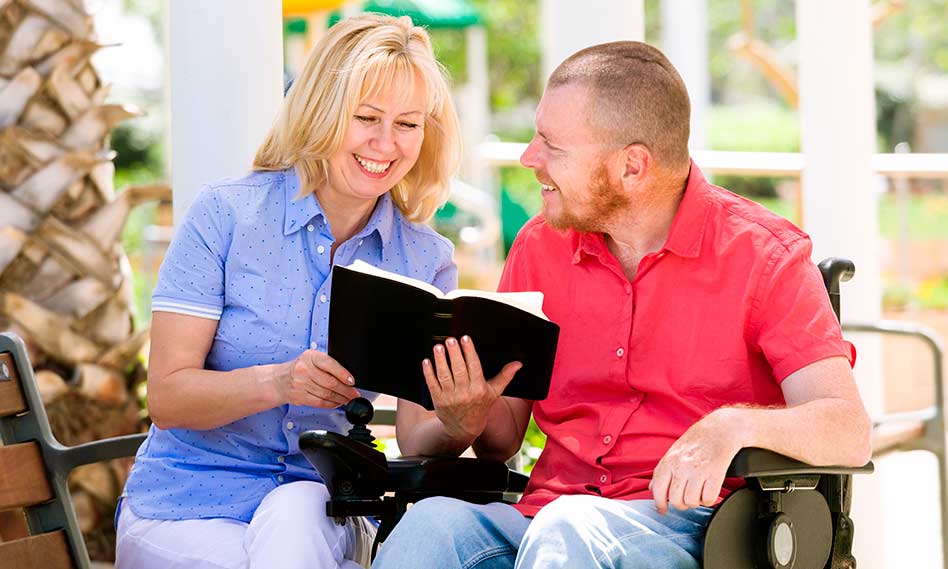The fastest-growing sector in Australia’s economy is in home palliative care. An estimated 12 million people have some form of disability support. However, many people don’t get their vaccines. The main areas where people with disabilities live and work are in the regions of Western Australia, Northern Territory, South Australia and Victoria. It is important to ensure that everyone gets a vaccination against diseases like yellow fever, rabies, toxoplasmosis, para-influenza and meningococcal meningitis. These vaccinations protect against deadly infections caused by bacteria and viruses, and they also prevent disease.
A Vaccination Clinic is a Benefit
Disability care jobs serve to assist the elderly, mentally disabled, mentally challenged, mentally handicapped, and emotionally distressed so they can live normal, active lives. Some job duties include washing, dressing, cleaning, laundry, cooking, and gardening. Job seekers need to have interpersonal skills, a caring nature, and physical fitness. Skilled caregivers can help in any part of the community, including home maintenance, group homes, nursing in home palliative care, rest houses, convalescent homes, rehabilitation centers, and nursing homes.
A Vaccination Clinic is a Benefit

Six licensed community clinics in Western Australia are authorized to administer the Victorian State VPD. All babies, children, and adults who can’t speak or walk must be vaccinated. The Department of Health and Human Services must have accredited healthcare professionals who are trained in administering the Victorian State VPD. The Victorian State Voting Rights Program is available to all individuals who are below four kilograms (6lbs) and children aged one month to four years old who are unable walk more than 200 metres.
A Vaccination Clinic is a Benefit
South Australian VPD eligibility requires that those who need a vaccine be in a residential setting for at minimum 60 years. You must reside in an approved residential setting for 60 years to be eligible for the South Australian VPD. An approved residential setting could be a care home, assisted living facility, or institution that provides support for disabled people. If the eligible person is not vaccinated or has a communicable disorder, they may apply for the SAAV. To be eligible for the SAAV, individuals must be at least 18 years of age. Children younger than six years old must be enrolled at a local child care center.
A Vaccination Clinic is a Benefit
Victoria residents must get vaccinated against diphtheria, rubella virus. This applies regardless of where they live. This applies to both children and adults. You need to visit a private agency or public health office to obtain a diphtheria/rubella vaccine in Victoria. If you don’t have a private healthcare provider, you can be vaccinated by a public health officer.
To be eligible for SAAV, you must meet certain criteria. For one, you must live in Victoria and be a resident in the area for at most one year. You must also be enrolled in Medicare Part B. If you fall within the aforementioned parameters, your immunization will be deemed complete once you have reached the age of sixty years of age. The SAAV can only be administered at a clinic that has been certified by the Joint Commission On Accreditation of Hospitals. This means that the facility has met all federal safety and quality standards.
You must submit an application to be placed in one of the three priority groups to be assigned. The priority classes are people with an incurable condition, people who require more comprehensive medical care, long-term disabled persons, and people who have a chronic condition. Vaccination is essential for both of these groups. It is also important to list your work history as well as any work that you did in a hospital, nursing facility, or other healthcare environment.
For a disabled person who has not met the work criteria, vaccination is mandatory as a necessary part of their rehabilitation. It is important to remember that both children and adults may be required to undergo vaccination in order to maintain their health. For this reason, vaccination clinics are a very important aspect of the Australian Government’s Disability Support system. Many of these clinics offer a range of services to support those who need it most. These support workers can provide immunizations as well as other support services. This may seem like a minor aspect of a great program, but it is an important aspect that many people neglect.

